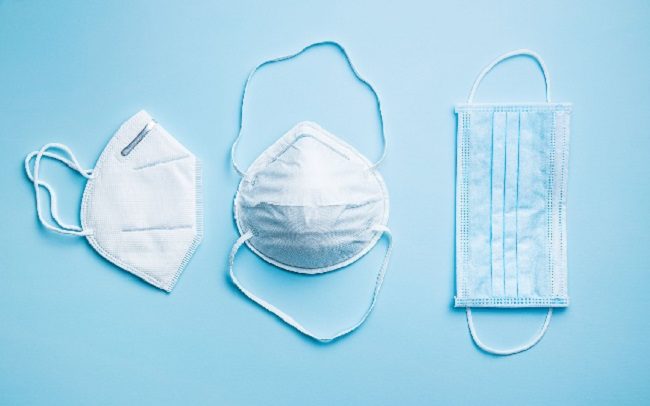Wearing of a face mask is one of the most important protocols recommended by the World Health Organization (WHO) in the prevention and transmission of COVID-19 from one person to another. To fight the spread of COVID-19, many places now require people to wear face masks.
WHO AND THE FACE MASK
Masks according to the WHO is a key measure to suppress transmission and save lives – “masks should be used as part of a comprehensive ‘Do it all’ approach including physical distancing, avoiding crowded, closed and closed-contact settings, good ventilation, cleaning hands, covering sneezes and coughs, and more”.
Depending on the type (medical masks, non-medical masks, fabric masks); masks could be used for either protection of healthy persons or to prevent onward transmission.
Medical masks are recommended for health workers in clinical settings; anyone feeling unwell including people with slight symptoms such as muscle aches, slight cough, sore throat, or fatigue; anyone awaiting COVID-19 test results or who has tested positive.
It is also recommended for the following groups including people aged 60 or over, people of any age with underlying health conditions including chronic respiratory diseases, cardiovascular disease, cancer, obesity, immunocompromised patients, and diabetes mellitus.
Non-medical or fabric masks could be used by the general public under the age of 60 and who do not have underlying health conditions.
DIRECTIVE ON MANDATORY USE OF FACE MASK
According to Section 169 of the Public Health Act, 2012 (Act 851), Ghana’s Minister of Health, Mr. Kwaku Agyemang-Manu, by an Executive Instrument (E.I.61), declared COVID-19 a public health emergency. Section 170 (1) of the Act provided that the Minister of Health may order an individual to take a preventive measure in respect of public health matters.
Based on this, on 25th April, 2020, the Minister directed through a press release signed on his behalf by Dr. Patrick Kuma-Aboagye, the Director General of the Ghana Health Service, that the use of face masks in all public places where it may be difficult to maintain social distancing.
“The general public is encouraged to wear mask or face covering when going out whether sick or not or attending to a sick person”, the statement said. The statement particularly stressed that any incorrect use of the face mask carries a high risk of infection.
It listed food vendors and sellers at market places, commercial vehicle drivers and attendants, commuters on public transports, persons in public and commercial centers, facilities and buildings including but not limited to offices, bars, workshops, restaurants, sports arenas and spars, saloons, shopping malls, churches, clinics and hospitals and all other facilities accessible to the public whether privately or publicly owned as the groups or persons required at all times to wear the face mask.
ENFORCEMENT
As Ghana began to witness a surge in the number of infections, President Nana Addo Dankwa Akufo-Addo, in his 22nd address to the nation, on Sunday, 17th January, 2021, instructed the security services to enforce strict adherence to the COVID-19 prevention protocols as part of government’s efforts to deal with the pandemic.
“I have instructed the Inspector General of Police (IGP), Mr. James Oppong-Boanuh to direct Officers, men, and women of the Police Service to ensure the rigorous enforcement of the law on mask-wearing at all public places and in public transport”, said the President.
ABUSE
One worrying challenge, however, despite the importance and the enforcement of the use of the face mask by the public is the level of abuse. Apart from improper wearing of it particularly removing it when trying to speak, pulling it down the chin, and wearing it under the nose, some users often use the face mask continuously for days even in the case of the surgical mask which is not reusable.
Master Danjumah Tasoglomwine, a Cab Driver who has one dirty surgical mask hanging on the left corner of his car, said he’s been using the mask for two days without changing.
He agreed it was dirty but said he could not afford to spend GHC1.00 on daily basis to be changing his face mask, saying, “I know I should be changing it regularly but I cannot afford it.”
By Prosper K. Kuorsoh


